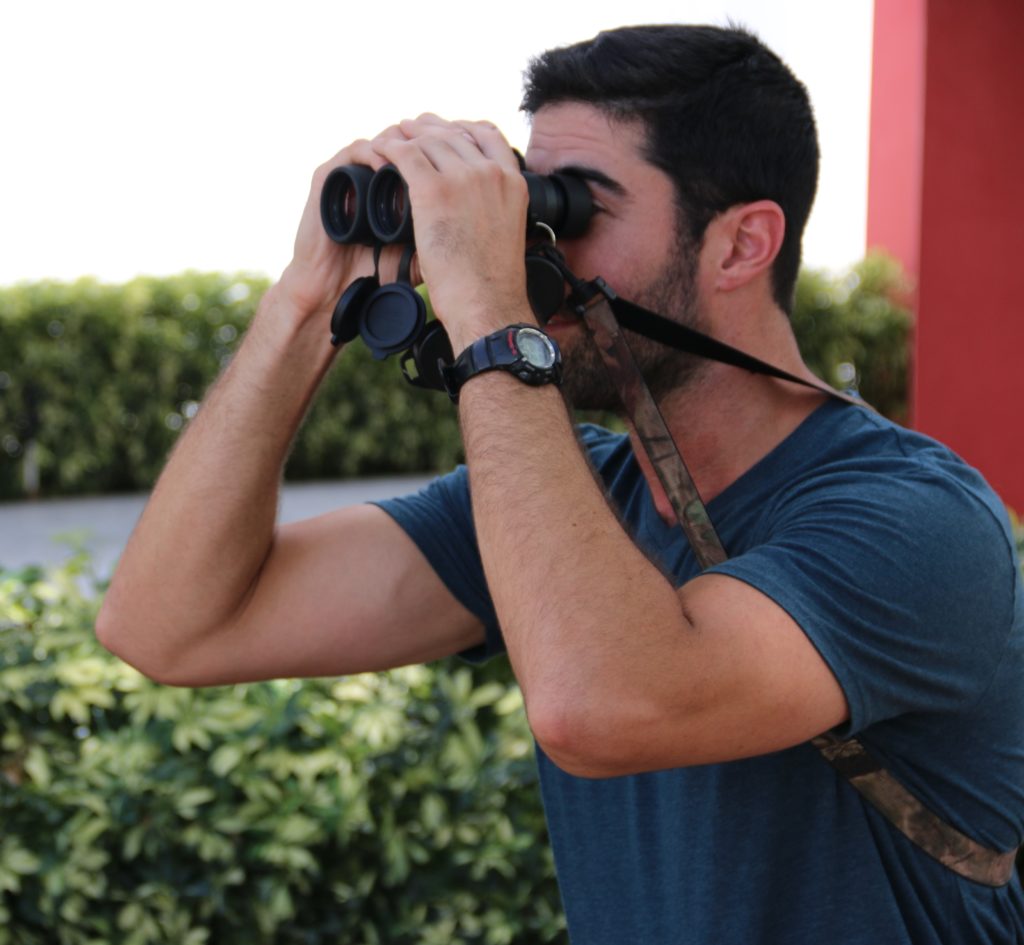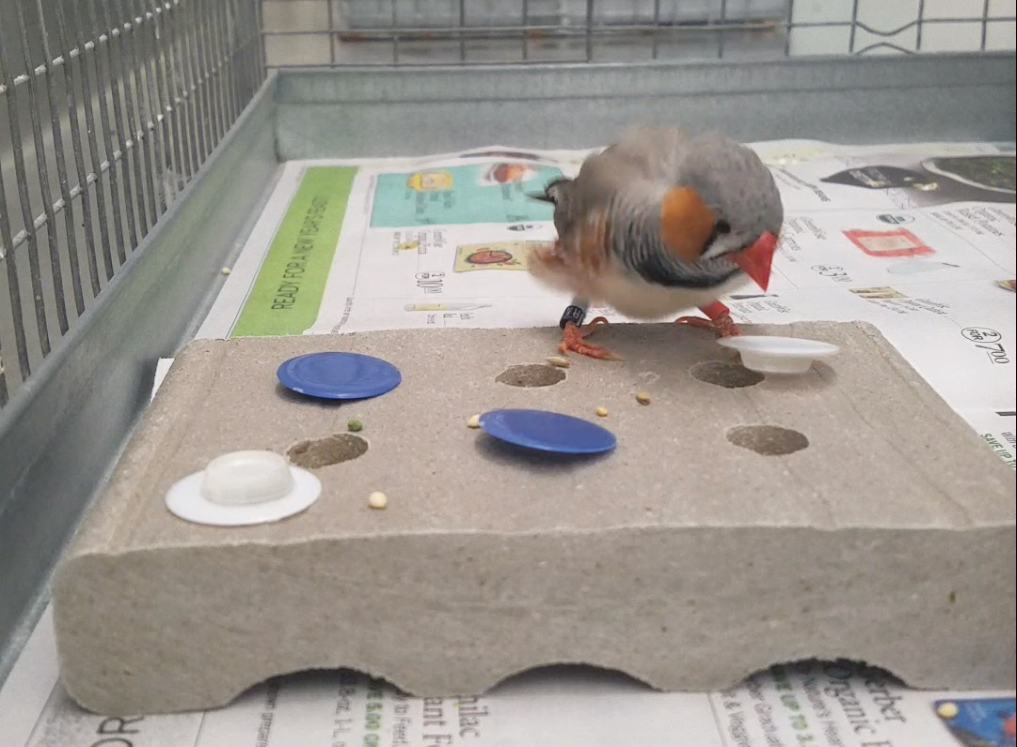This is the second in a series of posts running throughout 2020 profiling work done by recipients of last year’s Student & Postdoc Research Awards. View the full series here.
The gut microbiome has attracted a great deal of attention from scientists in recent years, who’ve linked it to aspects of human health and behavior ranging from immune function to schizophrenia. But other animals host microbial communities in their digestive tracts, too, and Morgan Slevin is studying how gut microbiome diversity affects cognition in birds.
Testing the cognitive abilities of songbirds in the lab requires a long series of steps. Morgan, a PhD student at Florida Atlantic University, and his colleagues designed an experiment that centered around training Zebra Finches in a new foraging technique — they placed seeds in wells drilled into a tiny plastic grid, covered the wells with opaque lids, and then taught the birds that they could get food by flipping the lids. “We teach it to them one step at a time, starting with not being afraid of the grid, since they tend to be afraid of new things,” says Morgan.
Once the finches get the hang of this task, it forms the framework for the rest of the experiment. Morgan and his colleagues test how long it takes the finches to catch on if food is only placed under lids with certain colors, and then how long it takes them to adapt if the colors are reversed. Together, these tasks test three different aspects of cognition: motor learning, associative memory, and flexibility.

Evaluating whether the finches’ performance on these tests was correlated with the diversity of their microbiomes required taking samples via the birds’ cloacas (the combined opening of a bird’s digestive and reproductive tracts), and funds from a 2019 AOS Student Research Award helped Morgan carry out this portion of his research. “We take a cloacal swab from each bird and then use that to extract DNA, both of which need to be done in super sterile conditions,” says Morgan. “It sounds straightforward, but it requires a lot of bits and pieces of equipment. The funds from AOS helped buy extraction kits, equipment to store swabs, things like that.”
The research is ongoing, but the results so far are exciting, says Morgan. “We actually found evidence of a relationship between gut microbiome diversity and cognitive performance, some of the first evidence of this in birds. Only the first of our three tasks, the one that tested learning and memory, showed a significant relationship, but that’s actually not surprising. It means the gut microbiome impacts some aspects of cognitive function but not all.”
Working in a lab required some adjustment for Morgan. “My background is in working with wild birds — I’m the guy who climbs around in the jungle finding nests,” he says. “I actually double as the lab manager, meaning I’m in charge of overseeing the aviary and everything required to keep it running, and that definitely had a steep learning curve.” His plan to return to the field to test how social stress affects the microbiomes of Northern Cardinals was put on hold temporarily due to the COVID-19 pandemic, but the park where his field site is located has recently reopened and he’s looking forward to salvaging as much of his field season as he can. “I’m hoping to apply some of what I’ve learned so far in a wild bird population. I’m sure things will be a lot more messy, but I’m excited to work with wild microbiomes.”
Gut microbes have the potential to affect memory and learning in humans as well as birds. The gut microbiome interacts with the brain indirectly via the stress response, explains Morgan; for example, if you have food poisoning and it stresses you out, the stress can affect your immune system, which may start indiscriminately killing gut bacteria and causing further problems. However, there’s also a direct connection between the gut and brain via the vagus nerve. “People don’t give enough credit to the role that the intestinal portion of the nervous system plays in the body, but it’s one of the biggest collections of neurons in the body, and the microbiome can send specific signals to the brain.”
Morgan is about a third of the way through the work he wants to do for his PhD dissertation, and he’s excited to see where the next few years will take him. “My whole dissertation is basically trying to elucidate that black box, the connections between the gut, the brain, and the nervous system, but in birds,” explains Morgan. “Which way do the arrows go in that triangle? How does manipulating one aspect affect the rest of it? That’s what I want to find out.”
